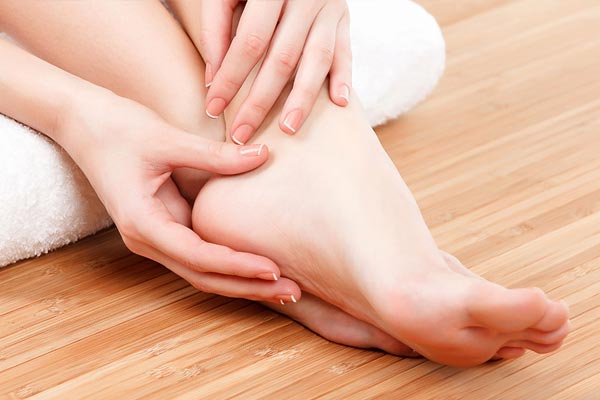Autoimmune diseases can be mysterious and infuriating to both patient and doctor alike.
Most of them have a wide range of symptoms—some of which are specific, but many of which can be vague and sporadic.
Due to this, diagnosis of autoimmune disorders often involves visits to multiple doctors who will use a process of elimination to rule out various diseases.
Fibromyalgia is one of the autoimmune disorders that doctors are working to learn more about.
Fibromyalgia affects women at a higher rate than men and doctors aren’t yet sure what causes the disease.
One theory is that it can be brought on by emotional or physical trauma (such as abuse, a car accident, or loss of a loved one).
Although there isn’t yet a cure for fibromyalgia, doctors have come a long way in working to help patients treat and control its many symptoms.
Common Fibromyalgia Symptoms
One of the fibromyalgia’s main symptoms is the pain in the muscles and joints throughout the body.
The location and severity of pain can differ from person to person, with some people experiencing a vague ache and others having severe pain that is located in a specific area (or areas) in the body.
Fibromyalgia pain typically affects the joints and muscles, but due to the nature of the disease, can cause vague pain in the abdomen and chest, as well as headaches.
Another common symptom of fibromyalgia is fatigue. Fibromyalgia fatigue is different from what most people feel when they’re tired; fibro fatigue is an extreme (and often chronic) fatigue that can affect a person’s ability to perform daily tasks such as go to work or run errands.
The fatigue may be so bad that the person experiencing it can’t even get out of bed. Episodes of fatigue and episodes of pain don’t necessarily coincide, so the two symptoms might not initially seem to be connected.
Fibromyalgia can also cause a wide variety of other symptoms. Some people experience severe migraine headaches as a result of their fibromyalgia.
Other people have trouble being exposed to bright lights, loud sounds or scents.
Muscle spasms can occur throughout the body. Gastrointestinal issues such as irritable bowel syndrome occur at a high rate in people with fibromyalgia.
Insomnia, anxiety, and depression are also very common. Patients are often hesitant or embarrassed to discuss symptoms such as loss of libido or erectile dysfunction.

Paresthesia: Fibromyalgia and Crawling Skin Sensation
One of the lesser-known symptoms of fibromyalgia is paresthesia. This condition causes someone to feel a burning, numb, tingling, prickling or crawling sensation in their skin. Some people describe it as a feeling of “pins and needles” in their skin.
They typically feel this feeling in their hands or feet, but it can occur in any part of the body.
Although paresthesia feels similar to having your hand or foot fall asleep when it has suffered a lack of circulation, it’s not the same thing.
Paresthesia occurs randomly and without any specific cause. It does not cause paralysis but can cause extreme numbness.
Paresthesia can be particularly frightening because it can be mistaken for symptoms of a stroke.
Anyone experiencing these symptoms should be checked out by a doctor to rule out any life-threatening causes—and anyone experiencing these symptoms in combination with a loss of bowel or bladder control, paralysis in any part of the body, or slurred speech should seek immediate medical attention.
Treatment for Paresthesia
Like most of the symptoms of fibromyalgia, paresthesia and the crawling, sometimes painful skin sensations it causes may be the result of a variety of factors.
Researchers believe that fibromyalgia causes an overstimulation of the central nervous system, which can cause oversensitivity throughout the body (which means higher amounts of pain and extreme sensitivity to touch and various sensations).
Another factor that may contribute to paresthesia is muscle inflammation that compresses nerves. Anxiety can also cause (and exacerbate) paresthesia.
Exercise and physical therapy can be an effective way to help relieve paresthesia (as well as other fibro symptoms).
Always check with your doctor before starting any new exercise program. He/she may recommend working with a physical therapist to target specific areas that are inflamed or problematic.
When starting an exercise regime on your own, always begin slowly and gently so as not to exacerbate your pain.
Exercise can help strengthen muscles and improve your flexibility. It can also help relieve stress and reduce anxiety.
It’s worth exploring more about stress and anxiety reduction as a treatment strategy for fibromyalgia.
Emotional distress can exacerbate most fibromyalgia symptoms—everything from pain and gastrointestinal distress and even paresthesia.
Numbness and tingling of the hands and feet is a classic symptom of a severe anxiety attack.
Even if the skin crawling symptoms are not caused by anxiety, an emotional upset can make them worse.
As mentioned before, a regular exercise program can be used to combat anxiety, as well as depression.
Your doctor may suggest antidepressants or anti-anxiety medications help you feel better.
Developing a daily meditation practice can be a helpful way to settle the mind and heal the body.
Changes in your diet can be helpful in combatting fibromyalgia symptoms, as well.
Some people have reported a lessening of their symptoms when they have eliminated dairy and gluten from their diet.
Many people believe that these two food groups can trigger allergic, inflammatory reactions in those with autoimmune disease.
To see if you have a sensitivity to a specific food, keep a food diary to see if there is a connection between the food you eat and your flare-ups.
Check the Top 3 Foods That Cause Fibromyalgia Flare-Ups.
For those without a sensitivity to gluten and dairy, getting all of the right nutrients is key to keeping your body functioning in a healthy way.
Eating a well-balanced, healthy diet is important to this; it will also help you maintain a healthy weight (which is another important factor in not aggravating fibromyalgia pain and paresthesia).
Sources:
http://www.everydayhealth.com/fibromyalgia/strange-signs-of-fibromyalgia.aspx


13 Comments